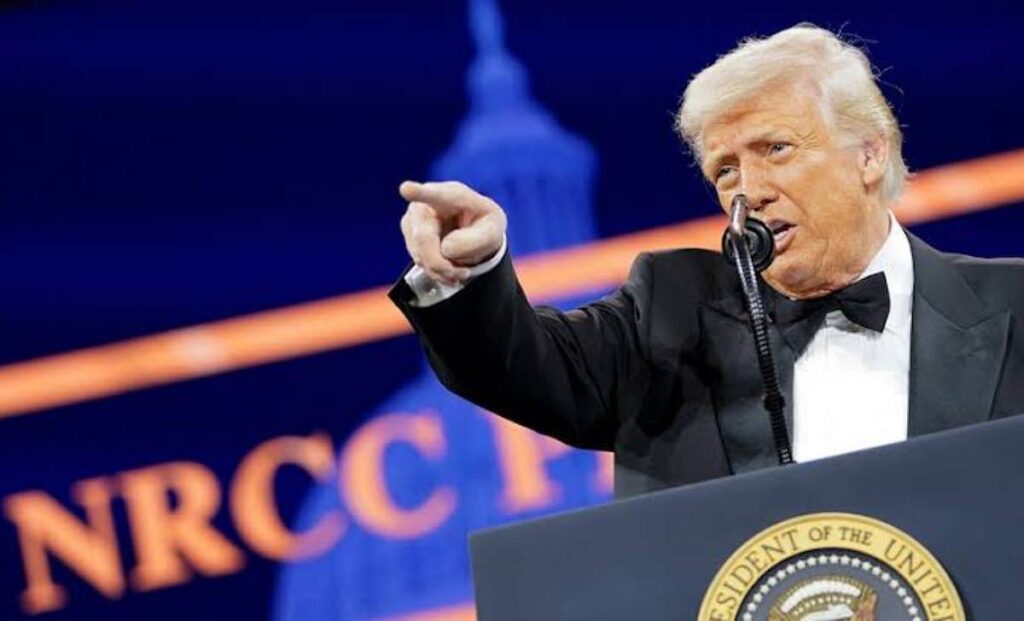In a move making national headlines, the Trump administration has announced that homeless individuals in Washington, D.C. will be required to choose between moving into an approved shelter or facing potential fines and jail time. The policy is part of a wider “crime crackdown” plan targeting public safety in the U.S. capital.
Why This Is Happening
The White House says the measure is aimed at reducing street crime, cleaning up public spaces, and offering access to essential services such as mental health care, addiction recovery programs, and job placement assistance.
Officials argue that public safety is not only about policing crimes like theft or assault — but also about maintaining clean, accessible public spaces for residents and visitors.
According to the administration, encampments have been linked to increased emergency calls, drug-related activity, and unsafe living conditions for those residing there.
How the Policy Works
Under the plan:
- Homeless individuals are approached by outreach teams from the D.C. government, U.S. Park Police, or Metropolitan Police.
- They are offered immediate relocation to a shelter with access to supportive services.
- If they refuse, they risk being charged under existing D.C. laws — particularly DC Code 22-1307, which prohibits blocking public spaces, and DC Municipal Regulation 24-100, which allows encampment removals.
- Penalties may include fines or jail time, depending on the level of noncompliance.
Since March 2025, over 70 homeless encampments have been cleared. As of this announcement, only two remain scheduled for removal.
Federal Takeover of DC Policing
President Trump has asserted federal control over the D.C. Metropolitan Police Department — an unusual move that allows federal officials to set priorities directly.
In addition:
- 800 National Guard troops have been deployed for public safety support.
- 500 federal law enforcement officers are assisting local agencies.
- The administration says this is necessary to curb crime, even though violent crime in D.C. has dropped 26% in 2025 compared to 2024.
Criticism From Advocates
Homelessness advocacy groups are raising serious concerns, calling the policy “unheard of and ominous.”
Key criticisms include:
- Shelter overcrowding – Many shelters are already at or near capacity.
- Loss of personal belongings – Encampment sweeps often result in personal items being discarded.
- Disruption of support networks – People who rely on nearby clinics, outreach workers, or community members may lose access.
- Criminalizing poverty – Critics argue the policy treats homelessness as a criminal offense rather than a social issue.
Organizations like the National Alliance to End Homelessness stress that long-term housing solutions, such as Housing First programs, have been proven more effective than forced relocation.
Supporters’ Perspective
Some supporters — including public safety advocates and local residents — argue that the policy is overdue.
They claim:
- Encampments can create unsafe conditions in parks, sidewalks, and transit areas.
- Offering shelter first is a reasonable compromise before pursuing legal penalties.
- Public spaces must remain open and clean for everyone’s use.
ABC News anchor Kyra Phillips has publicly supported the measure, citing personal safety concerns while traveling in urban areas.
Possible Impact on Homelessness in D.C.
It’s too early to say whether this policy will reduce homelessness rates or simply move people from public spaces into temporary shelters.
Past efforts in other U.S. cities show mixed results:
- Positive outcomes when paired with permanent housing programs and strong social services.
- Negative outcomes when enforcement outpaces the expansion of available shelter beds.
If D.C. does not increase affordable housing units and supportive housing options, experts warn that this crackdown could result in a cycle of shelter-hopping and repeated arrests.
Legal Basis for the Crackdown
The administration is relying on existing D.C. municipal laws, not new legislation:
- DC Code 22-1307 – Prohibits blocking or obstructing sidewalks, streets, and public spaces.
- DCMR 24-100 – Grants authority to remove encampments and personal property from public areas.
Because Washington, D.C. is a federal district, Congress and the President have more authority over local policies compared to U.S. states. This makes the legal path for such federal intervention easier, though it’s still highly controversial.
Alternative Solutions Experts Suggest
While the Trump administration’s plan focuses on immediate enforcement, experts suggest alternatives such as:
- Housing First programs – Providing stable housing without preconditions, then addressing mental health or addiction issues.
- Shelter capacity expansion – Building or upgrading shelters to handle increased demand.
- Job training & placement – Connecting homeless individuals with stable employment opportunities.
- Community health outreach – Offering medical and mental health care where people are, instead of requiring them to relocate first.
The Bigger Picture
Homelessness in America is a complex issue driven by:
- Rising housing costs
- Stagnant wages
- Mental health and addiction crises
- Insufficient affordable housing programs
The choice between shelter or jail is one of the most aggressive federal responses to homelessness in recent history — and its results will be closely watched by policymakers, advocates, and cities across the U.S.

